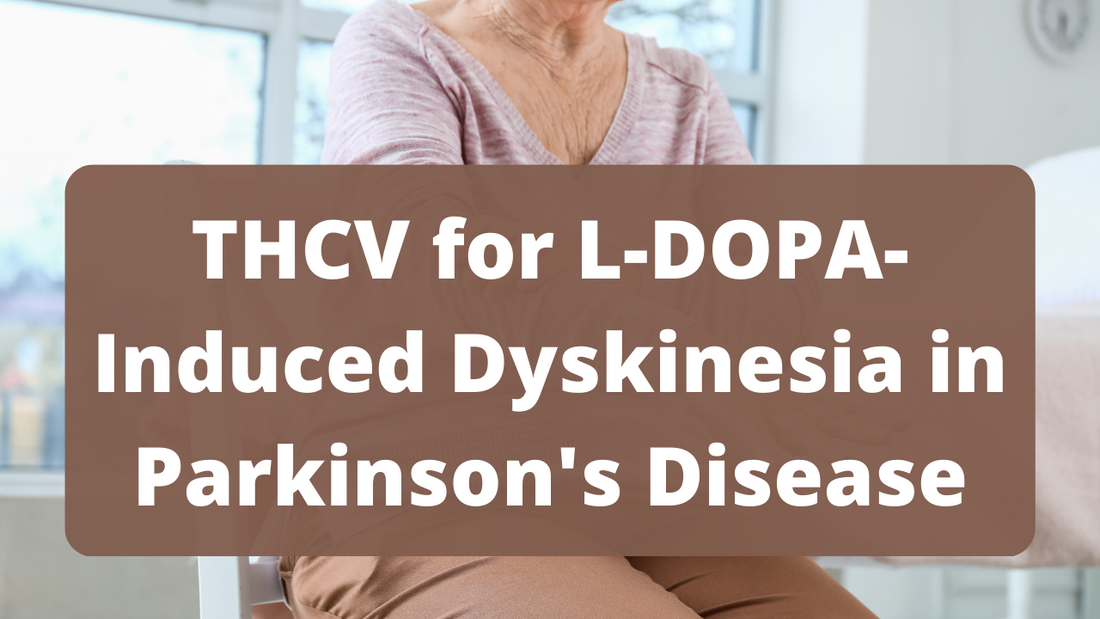What is THCV?
THCV, or tetrahydrocannabivarin, is a cannabinoid found in certain strains of cannabis. Like THC (tetrahydrocannabinol), it is a chemical compound that is present in the cannabis plant and has psychoactive effects when consumed.
THCV is known to have a more stimulant-like effect than THC. There is some evidence to suggest that THCV may have therapeutic benefits, including appetite suppression and anti-anxiety effects. It has also been shown to have potential as a treatment for conditions such as diabetes and Parkinson's disease. More research is needed to fully understand the therapeutic potential of THCV and to determine its safety and efficacy in humans.
What is parkinson?
Parkinson's disease is a chronic and progressive neurological disorder that affects movement. It is caused by the loss of cells in the brain that produce dopamine, a neurotransmitter that is important for movement and other functions. The symptoms of Parkinson's disease typically develop gradually over time and can include tremors, stiffness and rigidity of the muscles, slow movement, and difficulty with balance and coordination.
The exact cause of Parkinson's disease is not fully understood, but it is thought to be a combination of genetic and environmental factors. While there is currently no cure for Parkinson's disease, treatment can help to manage the symptoms and improve quality of life. Treatment may include medications to increase dopamine levels, physical therapy to improve mobility and strength, and non-pharmacological approaches such as occupational therapy and speech therapy.
Parkinson's disease is a common neurological disorder, affecting millions of people worldwide. It is most commonly diagnosed in people over the age of 60, but it can also occur in younger people. While the disease cannot be cured, early diagnosis and treatment can help to manage the symptoms and improve quality of life.
What is L-DOPA-induced dyskinesia
L-DOPA-induced dyskinesia (LID) is a type of abnormal involuntary movement that can occur as a side effect of long term treatment with L-DOPA, a medication commonly used to treat Parkinson's disease. L-DOPA is converted to dopamine in the brain, a neurotransmitter that is important for movement and other functions. While L-DOPA is effective at improving movement in people with Parkinson's disease, it can also cause LID, which can be disabling and interfere with the effectiveness of the medication.
The exact mechanism by which L-DOPA causes LID is not fully understood, but it is thought to involve changes in the way dopamine is produced and released in the brain. Dopamine is produced in the brain by neurons called dopaminergic neurons. These neurons release dopamine in response to signals from other neurons, and this release of dopamine helps to regulate movement. Long-term use of L-DOPA can also lead to changes in the way dopamine is produced and released, resulting in LID.
It is thought that LID may be caused by a combination of factors, including changes in the sensitivity of dopamine receptors, changes in the structure and function of dopaminergic neurons, and changes in the way L-DOPA is metabolized in the brain. Further research is needed to fully understand the mechanism of LID and to identify potential ways to prevent or treat it.
How THCV helps L-DOPA-induced dyskinesia
In this study, researchers looked at the effects of THCV on L-DOPA-induced dyskinesia (abnormal involuntary movements) in a mouse model of Parkinson's disease. They found that THCV was able to reduce the intensity of L-DOPA-induced dyskinesia and delay its onset, without interfering with the therapeutic effects of L-DOPA on movement. These findings suggest that THCV may have potential as a treatment for L-DOPA-induced dyskinesia in people with Parkinson's disease, although more research is needed to confirm this. THCV has both antioxidant and CB2 receptor agonist properties, which may contribute to its neuroprotective effects, and it has a CB1 receptor antagonist profile at doses lower than 5 mg/kg, which may contribute to its anti-hypokinetic effects. Overall, the study suggests that THCV may be a promising candidate for developing a cannabinoid-based therapy for Parkinson's disease.

